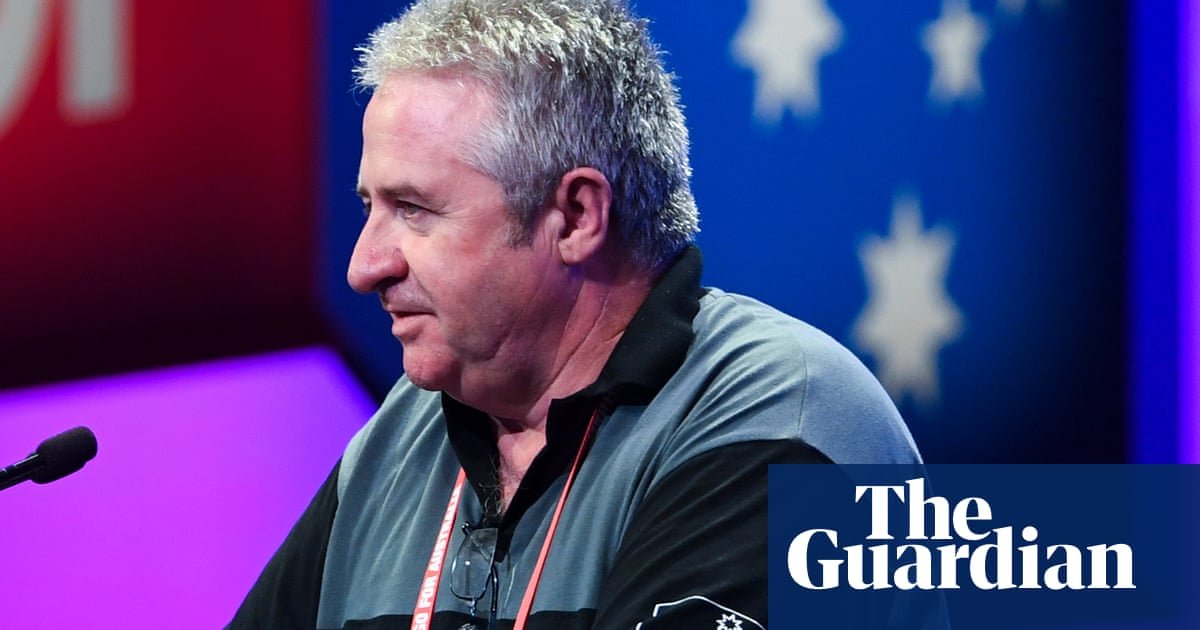The administrator of the construction union wants a “clean sweep” of union-appointed board directors on the Cbus industry super fund, prompting two resignations and a plan to sack another former union official.
On Wednesday a spokesperson for the Construction Forestry Maritime Employees Union confirmed Rita Mallia, who was sacked from her New South Wales construction president role on Friday, and former ACT secretary, Jason O’Mara, had resigned as member directors of the fund, which is one of Australia’s largest, with $94bn under management.
Dave Noonan, a former national secretary of the construction division, is digging in, refusing an invitation to resign because he had not been “formally advised of any reason to do so”.
“Nor has any allegation been put to me of any impropriety or unlawful conduct on my part,” he wrote in a letter to the administrator, Mark Irving KC.
Noonan, who in 2019 was named Australian Institute of Superannuation Trustees trustee of the year, said he had “at all times fulfilled my duties to the fund and its members”.
But the CFMEU spokesperson for the administrator said he “is of the view that given the current circumstances there should be a clean sweep of CFMEU positions on Cbus”.
Noonan told Guardian Australia he fears that “the political attacks on the CFMEU have now been joined on a second front, an attack on industry super” including by “some elements of the Liberal party”.
The shadow assistant housing affordability minister, Andrew Bragg, has used allegations of criminal misconduct and bikie links in the construction union to call for Cbus, the construction industry super fund, to be removed from work with the Housing Australia Future Fund and subject to a parliamentary inquiry.
Noonan dismissed claims of undue union influence on industry funds as “highly ideological nonsense”.
“The industry super model has delivered a decent retirement to hundreds of thousands of Australians.
“It was fought for and won in the construction industry by construction workers and their unions and they can be very proud of contribution it makes to the economic future of this country.”
The Cbus cleanout is just one facet of the fallout from the Albanese government’s decision to team up with the Coalition to pass legislation to appoint administrators to the CFMEU.
Large public rallies on Tuesday denounced Labor, with many participants taking unprotected industrial action which saw them docked at least four hours’ pay, as industrial laws require employers not to pay employees if they don’t turn up for work.
The New South Wales and ACT secretary of the Electrical Trades Union, Allen Hicks, said his branch is “very disappointed” in the Australian Council of Trade Unions for its “unforgivable” decision to support legislation that did not provide construction union officials “natural justice or procedural fairness”.
The ETU, which donated more than $1m to Labor ahead of the last election, has decided it won’t be donating to Labor again next election and suspended its affiliation fee, worth $780,000 a year, to the ACTU to protest against the suspension of the CFMEU from the union peak body.
The ETU national secretary, Michael Wright, said that “serious allegations” in the construction union should have been tested by court processes not “trial by parliament”.
“It’s an extremely worrying precedent, to legislate what should be court outcomes,” Wright said, noting the NSW Liberals had already called for the ETU to be “next in line” to crack down on “lawful industrial activism”.
Sacked Queensland and Northern Territory construction secretary Michael Ravbar is expected to launch high court action this week, arguing the law breached the separation of powers and did not afford the CFMEU due process, because the Fair Work Commission general manager had already applied to appoint an administrator in the federal court.
after newsletter promotion
Separate challenges will contest parallel laws at the state level, including in New South Wales.
The ACTU executive resolved to support the CFMEU going into administration, but blue-collar unions feel the ACTU’s secretary, Sally McManus, and president, Michele O’Neil, went further by supporting what Hicks labelled the “completely unnecessary” demand by the Albanese government for the union to consent to administrators or risk special legislation.
“For them to support that proposition is untenable,” he said. “The union movement fights for procedural fairness, the presumption of innocence and a fair go.”
“Supporting the government position to put the CFMEU into administration without right to defend themselves [in the federal court] is unforgivable.
“There are big questions about the ongoing leadership of McManus and O’Neil with regards to their position, and why they wouldn’t oppose this draconian, undemocratic legislation.”
The comments come ahead of a meeting of the broader Communications Electrical Plumbing Union to debate the continuation of its ACTU affiliation.
McManus – who amid adverse reports about the construction union in July said she was not aware of alleged criminal infiltration – said on Wednesday that the ACTU had “urged the CFMEU to take action to rid themselves of criminal elements and for those accused to stand aside pending investigations”.
“When they were unable to do this, we urged them to consent to administration to avoid legislation,” she said.
“Unfortunately, they were also unable to do this. There is no place in our movement for criminal activity or violence.
“Action also needs to be taken to rid the industry of these influences and employers bear the most amount of responsibility here.
“The ACTU wants to see the union return to democratic rank and file control as soon as practical and every effort made to ensure the interests of members are protected.”
Last week construction union secretary, Zach Smith, said the union had taken allegations “very seriously” by appointing an independent investigator, Geoffrey Watson. It had also conducted an independent governance review, removed some officials and introduced a code of conduct for delegates.
